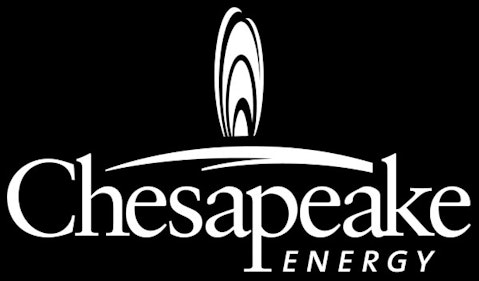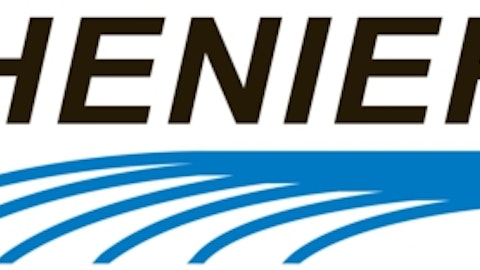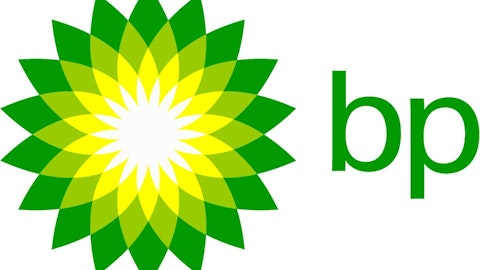The quest for oil and gas in the U.S.has resulted in numerous discoveries over the last two years. Leading the oil exploration exercise is Chesapeake Energy Corporation (NYSE:CHK), beating industry giants such as Exxon Mobil Corporation (NYSE:XOM) and Chevron Corporation (NYSE:CVX).
Chesapeake Energy Corporation (NYSE:CHK) has been able to discover more shale gas deposits in the U.S. over the last two years than any of its rivals. However, this massive effort did not come cheap. The company, then under the leadership of CEO Aubrey McClendon, burned too much cash leaving its balance sheet in tatters.
Chesapeake Energy Corporation (NYSE:CHK) operated under a stressed balance sheet throughout the whole of last year, as the massive capital investment in oil exploration failed to yield returns on low natural gas prices. Chesapeake spent too much on exploration alone, leave alone drilling, as compared to some of its rivals.
Shale gas exploration and production proves too expensive against falling prices
According to reports, Chesapeake Energy Corporation (NYSE:CHK) has spent about $25 billion in oil exploration and discovery since 2011. This translates to about $35 a barrel compared to EOG Resources Inc (NYSE:EOG)’ cost of just $23 per barrel. On the other hand, Continental Resources, Inc. (NYSE:CLR) spent just $20 per barrel for the exercise. Some of Chesapeake’s discoveries are yet to be drilled and the company has already embarked on a divestiture program in a bid to strengthen its balance sheet.
The latest disposal of shale gas deposits by the Oklahoma-based Chesapeake Energy Corporation (NYSE:CHK) was announced on July 3, involving a sale of $1 billion worth of shale acreage to Expo Resources. The shale deposits on this land could produce 6,100 barrels a day and 114 million cubic feet of gas.
The company seems to be literally giving up the land free if we were to factor in the potential income associated with the piece of land it just sold to Expo Resources. However, this also indicates that Chesapeake Energy Corporation (NYSE:CHK) has finally come to its senses that too much of anything could be bad.
Chesapeake had no option but to sell assets
Natural gas accounts for 75% of Chesapeake Energy Corporation (NYSE:CHK)’s income, a factor that has affected its margins and hence operating cash flow. The company has been selling fixed assets since 2012 in a bid to trim the debt attached to its balance sheet as well as provide financing for its capital expenditure in 2013 and beyond.
Right now,Chesapeake believes that it has enough cash to finance capital expenses, without affecting the level of debt on its balance sheet. Chesapeake is targeting to dispose of $6 billion-$7 billion worth of assets this year.
The sale of assets seems to be working the magic for the company based on its current performance in the market. The stock is up 26% year-to-date. It set a new 12-month high of $22.92 in March, and in May, came close to topping that. Those are two major milestones within three months, as the company gets its balance sheet to a stable position.
Nonetheless, even after refurbishing its balance sheet, Chesapeake Energy Corporation (NYSE:CHK) may need to diversify its business to trim its reliance on natural gas. It is quite evident that even with the heavy investments in oil exploration;Chesapeake would have had a better balance sheet if gas prices were higher. This means that the company’s poor performance over the last one year could also be attributed to unyielding gas sales, which provided low margins.
Competition
One of Chesapeake Energy Corporation (NYSE:CHK)’s major rivals in the oil and gas industry in the U.S. is Exxon Mobil Corporation (NYSE:XOM). The giant oil company has plants all over the world and recently inked a deal with Russia’s Rosneft, which extends their strategic co-operation in the quest for Arctic energy.
Exxon Mobil Corporation (NYSE:XOM) is the U.S’. largest oil and gas company and recently reported near record equaling earnings for any company in a given fiscal year. The company reported $44.88 billion in profit for fiscal year 2012, just $300 million or 1% short of its own record set in 2008, when oil prices reached record highs.
Chevron Corporation (NYSE:CVX) on the other hand, has been exploring oil deposits in various areas across the world, and has keen interest in Africa, with plants in South, West, and East Africa. The company also recently made discoveries in the Gulf of Mexico, where it expects to spend less in terms of cost per barrel.
The San Ramon, CA-based Chevron Corporation (NYSE:CVX) also has plants in Norway and other parts of the Scandinavian coast. The company’s petrochemical joint venture with Phillips 66 (NYSE:PSX), Chevron Phillips, diversifies its portfolio. The joint venture recently announced that it was exploring ways to expand in the Middle East, including building a new plant.
Performance and valuation
Chesapeake Energy’s most recent quarterly revenue grew 42%. On the other hand, Chevron Corporation (NYSE:CVX)’s revenue fell 9% while Exxon Mobil Corporation (NYSE:XOM)’s was down 13%.Chesapeake’s turnaround seems to be working in this perspective.
The company’s gross and operating margins are also impressive at 42% and 14%, respectively, compared to Chevron Corporation (NYSE:CVX)’s 30% and 15%, and Exxon Mobil Corporation (NYSE:XOM)’s 30% and 13%. However, the bottom line reveals Chesapeake’s weakness, as it stands at a loss of $1.33
In terms of valuation, Chesapeake Energy Corporation (NYSE:CHK) trades at a price to earnings growth ratio (PEG) of 0.27, and a price to sales (P/S) ratio of 1.02 times, compared to Chevron Corporation (NYSE:CVX)’s 5.26 and 1.06, respectively, and Exxon Mobil Corporation (NYSE:XOM)’s 5.52 and 0.97 times, respectively.Chesapeake’s seemingly impressive PEG indicates that investors are less attracted to the stock as compared to its rivals.
The bottom line
Chesapeake Energy Corporation (NYSE:CHK)’s goal of selling $16 billion worth of assets remains on course. The company does seem to be shying off from making more investments in shale gas explorations, as natural gas prices continue to dwindle.
Nonetheless, it now does seem to be on the course of recovery, and may yet provide a perfect opportunity to buy. In the long-term,Chesapeake may have to diversify its portfolio, or hope that gas prices improve.
The article Is This Shale Gas Giant Getting Better? originally appeared on Fool.com and is written by Nicholas Kitonyi.
Nicholas Kitonyi has no position in any stocks mentioned. The Motley Fool recommends Chevron. The Motley Fool has the following options: Long Jan 2014 $20 Calls on Chesapeake Energy, Long Jan 2014 $30 Calls on Chesapeake Energy, and Short Jan 2014 $15 Puts on Chesapeake Energy. Nicholas is a member of The Motley Fool Blog Network — entries represent the personal opinion of the blogger and are not formally edited.
Copyright © 1995 – 2013 The Motley Fool, LLC. All rights reserved. The Motley Fool has a disclosure policy.





